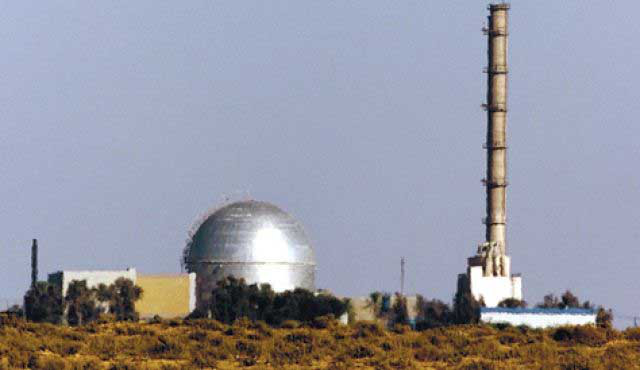
Israeli Prime Minister Benjamin Netanyahu has tried to steal the show before the November 24 deadline, when officials of the so-called P5+1 (US, Britain, France, Russia, China plus Germany) group of United Nations Security Council members are hopefully expected at a meeting in Vienna to reach an agreement that would block Iran’s alleged path to develop a nuclear bomb.
In interviews with Israeli and foreign media, as well as on American Sunday talkshows, Netanyahu expressed support for the US bombardment against Daesh (Islamic State of Iraq and the Levant) militants, but warned against any milder approach towards Iran. “To defeat IS [Daesh] but leave Iran as a nuclear threshold state is to win the battle and lose the war and we cannot afford to lose this war.” He also stressed in a meeting with the German Foreign Minister Frank-Walter Steinmeier, who was visiting Israel, that Iran’s missile programme was “intended for Europe and the United States, and their only purpose is to carry a nuclear payload”. He also reiterated Israel’s opposition to any agreement that leaves Iran with a residual capacity to enrich uranium and urged tougher sanctions rather than a deal, reported Ynet news, an Israeli news service. “The alternative to a bad deal is not war. The alternative to a bad deal are more sanctions, tougher sanctions that will make Iran dismantle its capacity to make nuclear bombs,” he said.
What has been puzzling during this 12-year dispute, crowned by a year of diplomacy with Iran, is the failure of western powers, particularly the US, to take Israel to task over its assumed nuclear arsenal. Understandably, US President Barack Obama would like some accomplishments in his last two years at the White House, after his Democratic Party suffered serious losses in the mid-term elections. Obviously he is banking on scoring an achievement with Iran, if not next week then shortly thereafter. Iran, similarly, is eager that the western powers would phase out their sanctions, which have severely hurt its oil-dependent economy. The political situation within Israel at present is very serious, a development that has prompted Netanyahu to advise leading members of his Likud party to prepare for early elections since the bickering in the multi-party coalition has threatened to tear the government apart. For example, Economy Minister Naftali Bennett, who heads the hawkish Jewish Home party, has recently warned that if a bill to define Israel by law as a Jewish state did not pass, “there will be no coalition”. In addition, coalition partners have been publicly sniping and threatening after Justice Minister Tzipi Livni tried to torpedo the “Jewish state” bill.
Additionally, a European Union (EU) “sanctions document”, revealed by Haaretz, a liberal Israeli daily, shows that potential punishments for Israel could include the recalling of EU ambassadors if illegal colony construction is advanced in sensitive areas of the occupied West Bank, including occupied East Jerusalem. The confidential document, written by Christian Berger, head of the European External Action Services’ Middle East Department, expresses the principle that the EU must respond with sanctions to actions by the Israeli government that threaten to make the two-state solution impossible.
But considering the current serious negotiations between leading western powers and Iran over its moderate nuclear ambitions, as maintained by key Iranians officials, the failure of western leaders to focus on Israel’s nuclear arsenal is shocking. One wishes the P5+1 will, in the near future, turn its eyes on Israel’s secretive nuclear status, which has never been officially admitted. This much-desired step will definitely help in calming the turbulent situation in the Middle East, which could then be defined as a nuclear-free region covering both Iran and the countries in the eastern Mediterranean.
In an editorial last Sunday, the New York Times applauded Obama for taking “the right step recently when he wrote to Iran’s supreme leader, Ayatollah Ali Khamenei, to nudge him towards a nuclear deal”. A similar step by the American president towards Israel’s prime minister may help in improving the political atmosphere in the Middle East. It remains to be seen if Netanyahu would go along with the American suggestion.
George S. Hishmeh is a Washington-based columnist. He can be contacted at ghishmeh@gulfnews.com









